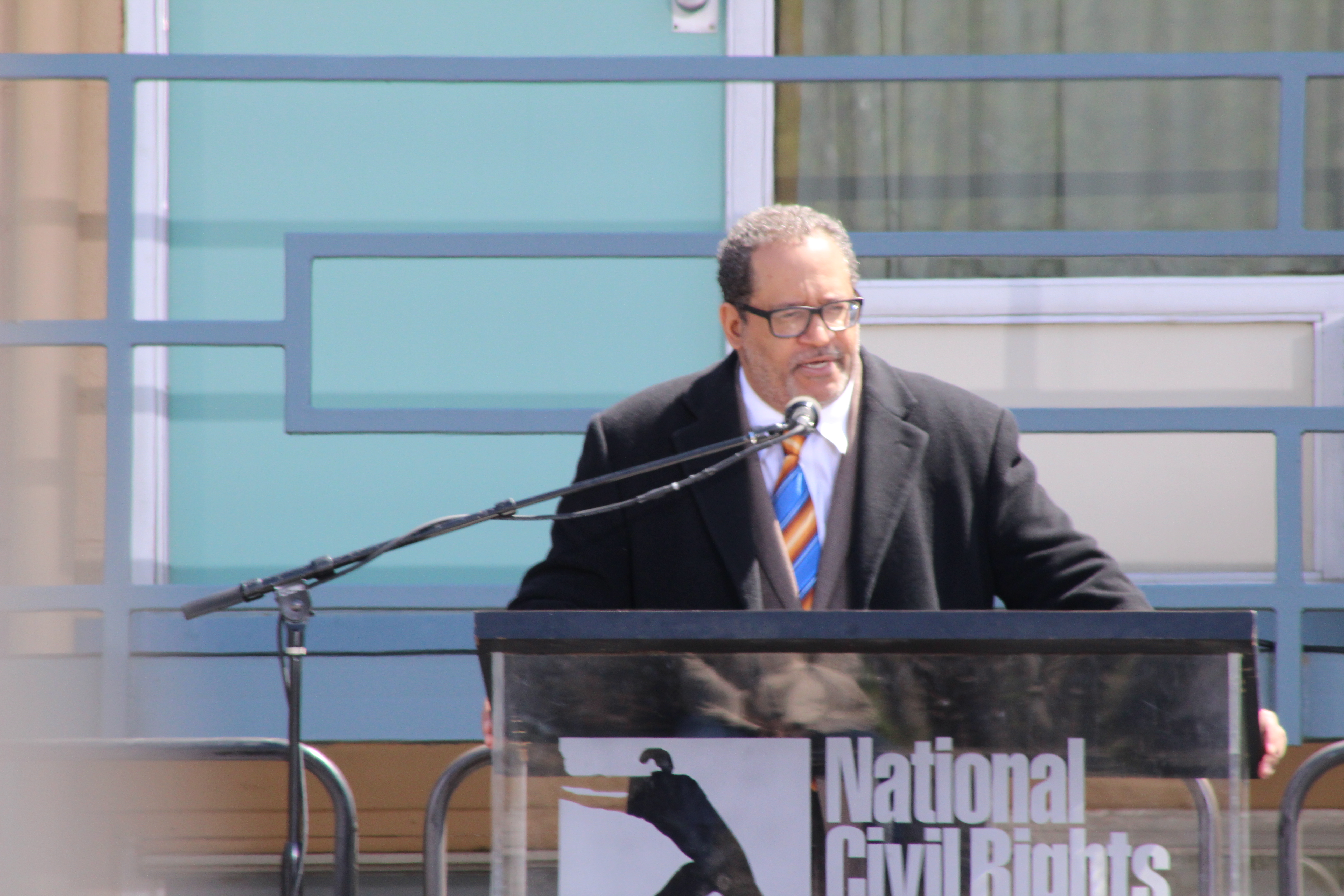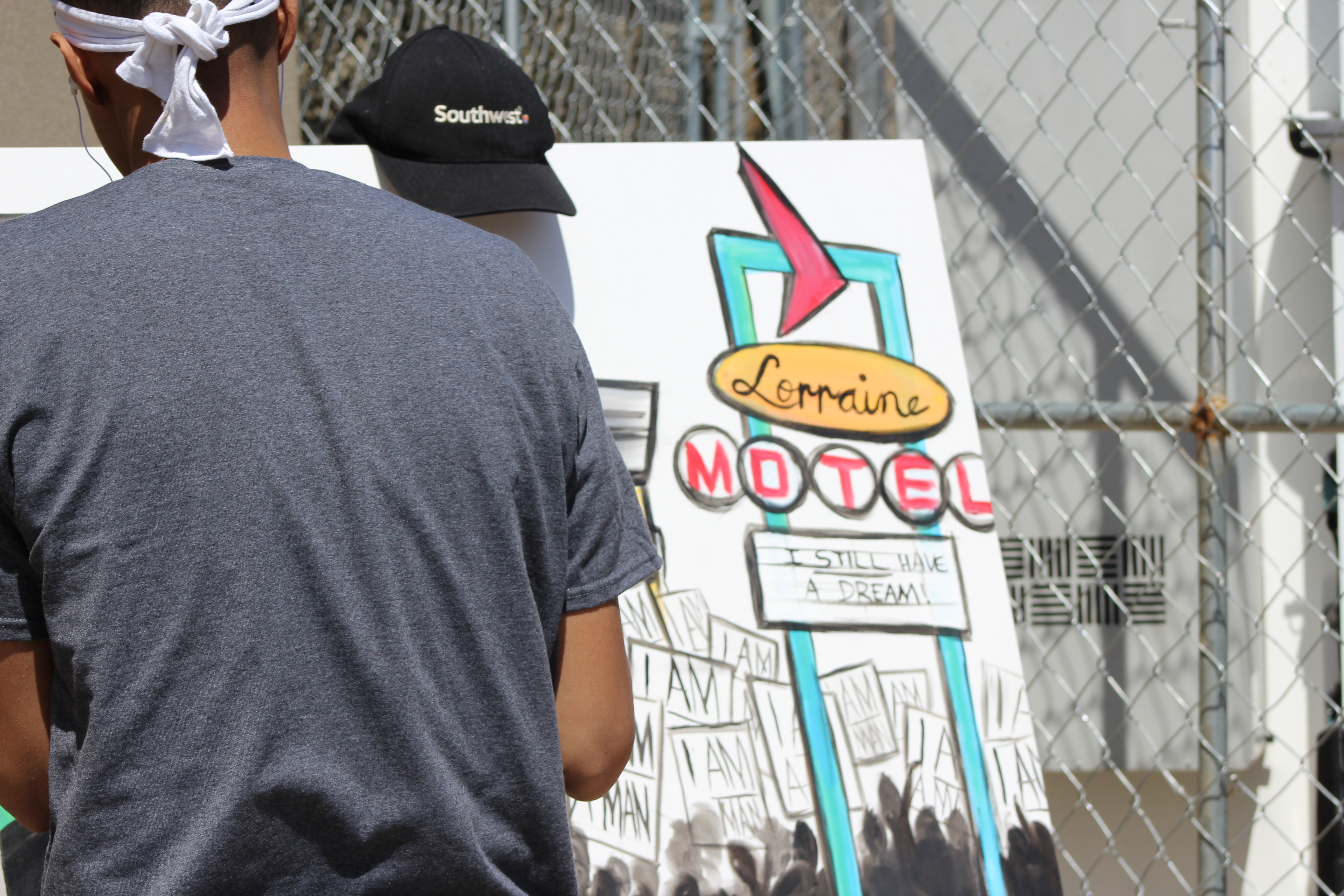Five of Mount Vernon’s Innovation Diploma students are working to create an exhibit in Atlanta’s Center for Civil and Human Rights in celebration of the life of Dr. Martin Luther King, Jr.
In true MV fashion, the group conducted deeper research by traveling to Memphis for MLK50 – the 50th anniversary of the death of Dr. King.
Photos below were taken by student Skyler Tiffin.
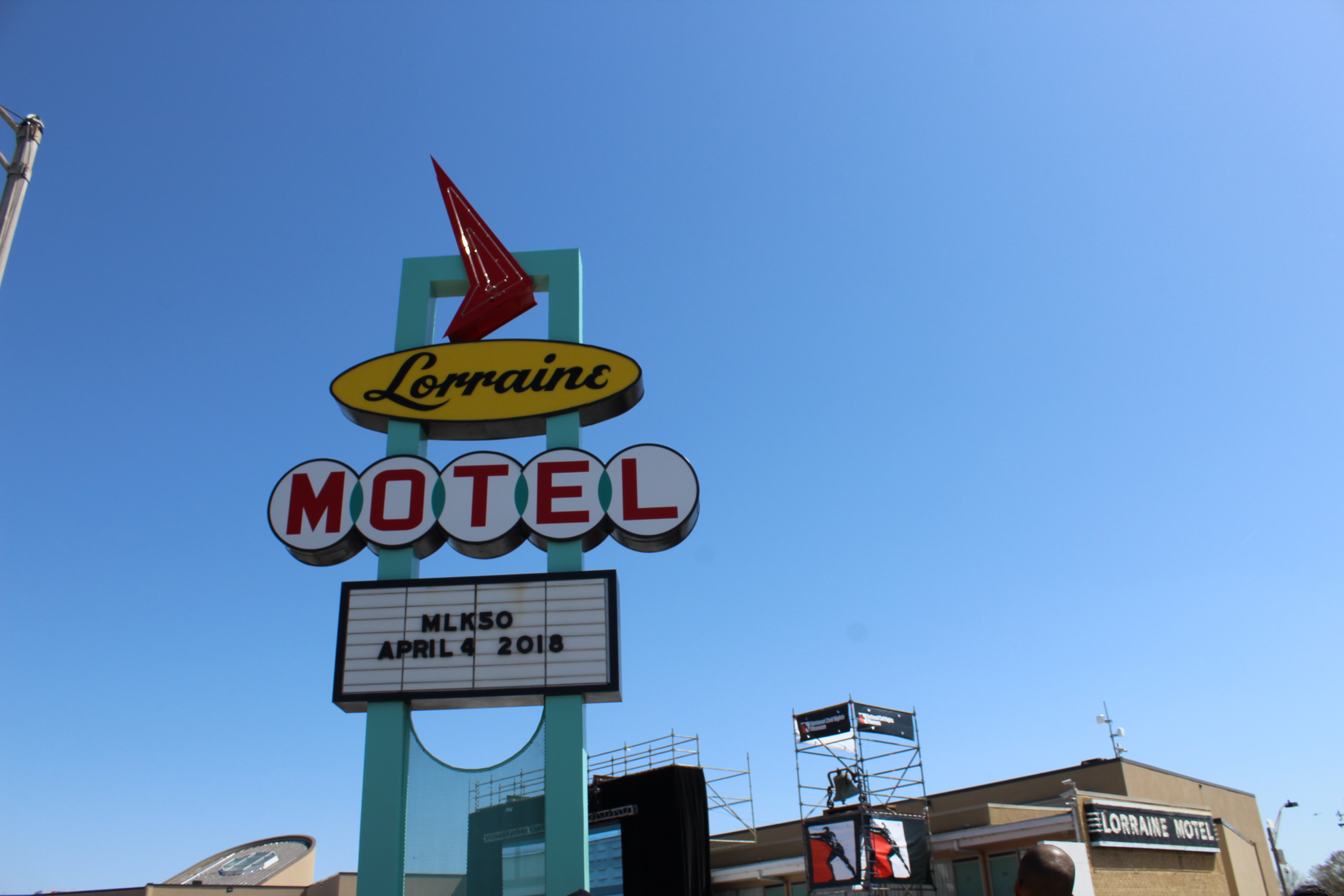 Megan Lienau, Senior:
Megan Lienau, Senior:
To stand in a place where history happened on a day as historic as this, is incredibly moving and thought provoking. I see the movement from a different perspective, it is different to be white and hear the words of prominent civil rights thinkers than it is to be a person of color. I have an immense reverence for Dr. King and his mission, however, I have not been as emotionally moved by the history of our country until today. Fully understanding the events of Bloody Sunday, the deaths of the Memphis sanitation workers that sparked the Memphis strike and march, that motivated Dr. King to come here and to deliver an unprepared “Mountain Top” sermon, and fire up his team about the possibilities of the Poor People’s Campaign, makes it difficult not to imagine my own family or my own community being the ones faced with this adversity, and I know my imagination is limited and that I cannot truly feel the plight of those who fought to free their lives from discrimination and oppression. Today it was very inspiring to see that history is made every day. At the beginning of the day our team walked with Terrence Lester from Love Beyond Walls as he achieved a mission of advocacy and service, walking from Atlanta, GA to Memphis, TN with the mission of spreading awareness about the plight of homeless and impoverished people in our communities. Hearing him speak fervently about providing aid to those who need it the most reminds me that change is made by passionate people, and that oration, I think, is the key to change as well. Clear communication of profound ideas in combination with a will for sacrifice and a plan for action is seemingly unstoppable in an era of social media and extremism. I hope to find passion at that level in my own life.
I am incredibly grateful to Mount Vernon for having the wherewithal to allow a group of students like us to take the day and spend it in Memphis. My understanding of Civil Rights, the legacy, and mission of Dr. King is so much deeper because I have been here to experience this day. I guarantee that my understanding of, and emotional connection to, the issues of civil rights would be nowhere near as intense as it is in this moment if I had merely gone to school this morning and watched a video about Dr. King and his mission. The process of making the trip and engaging in conversation with individuals I have never met ingrains these lessons in me and I am moved to live my life advocating for and serving others.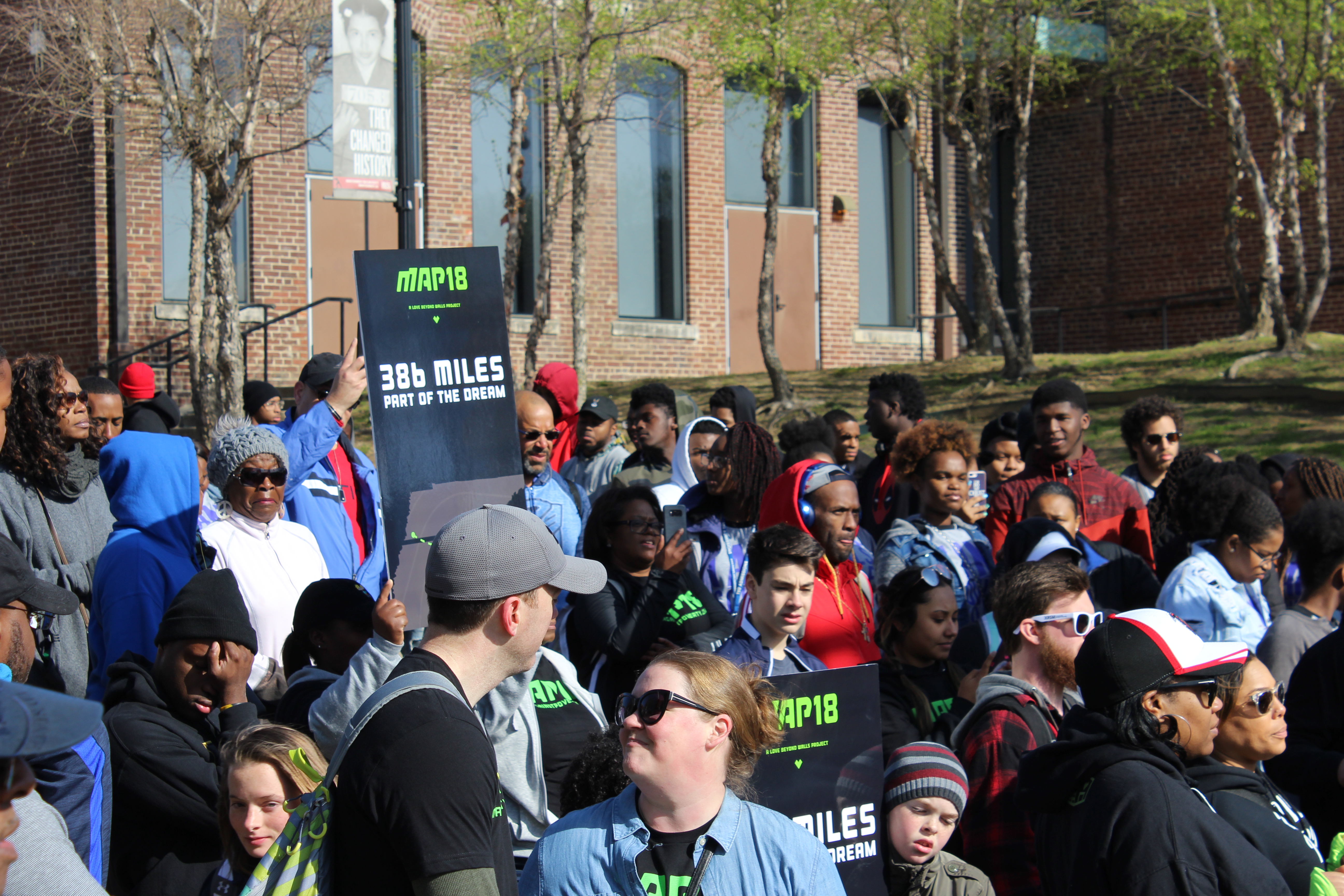 Bryce Jones, Junior:
Bryce Jones, Junior:
Our trip to Memphis was a great opportunity to develop our project further, and gain a better understanding of current activism. I savored the chance to bond with my team members over delicious Memphis barbecue. We joined Terence Lester- the director of Love Beyond Walls- as he completed the final leg of his walk from Atlanta to Memphis. We watched as community leaders, preachers, wives of martyrs, and the next generation of activists spoke about how Dr. King’s legacy inspired them to ask, “Where do we go from here?” I’d say that overall, this experience pulled me closer to civil rights and my community.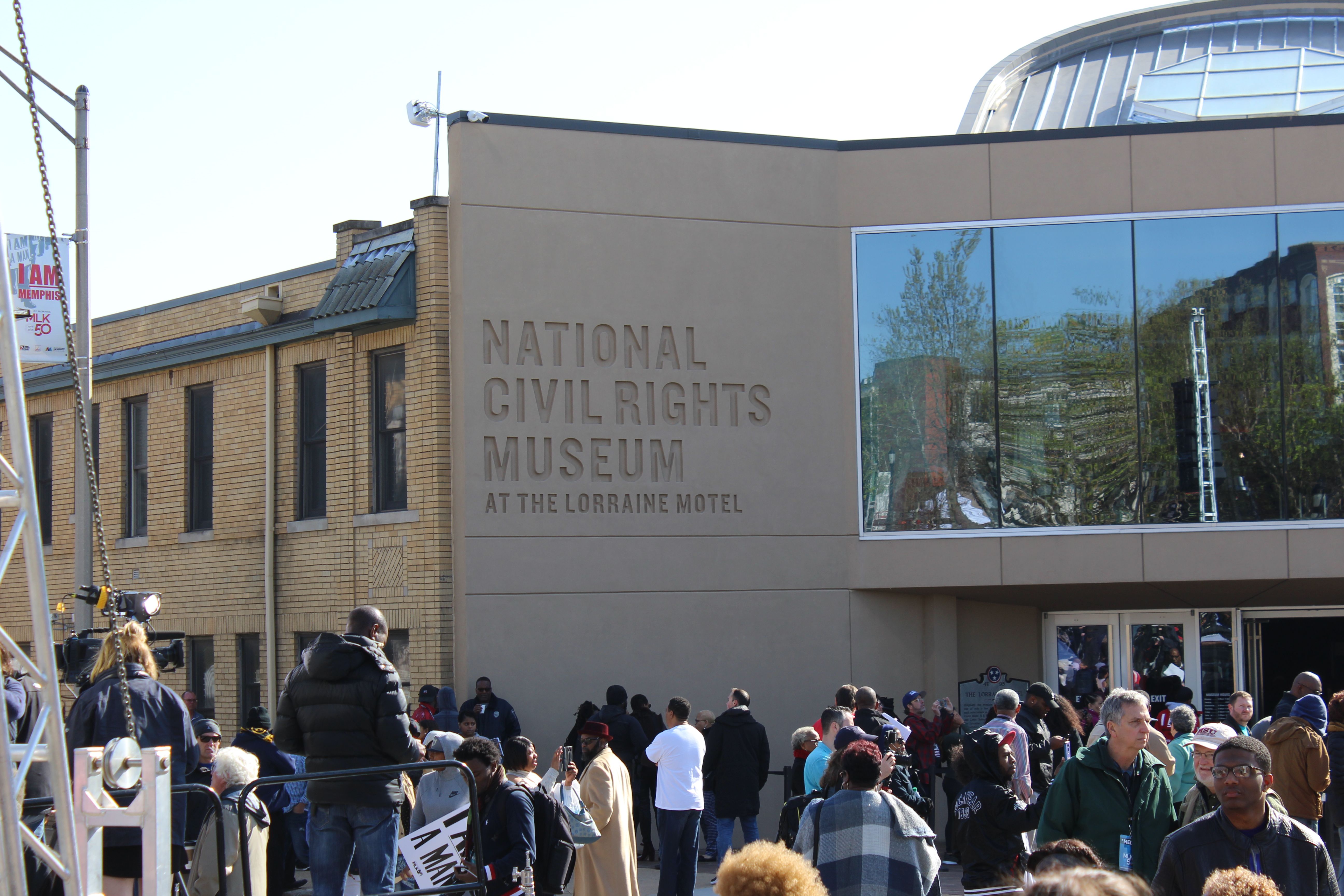 Skyler Tiffin, Sophomore:
Skyler Tiffin, Sophomore:
Memphis was an incredibly powerful experience. As soon as we arrived at the Motel Lorraine after completing the Map18 walk – a walk from Atlanta to Memphis to bring attention to poverty and homelessness – I realized that this was the spot where Dr. Martin Luther King, Jr.’s life ended. I was able to stand in the room where he stayed, walk in the space where the shooter stood, and truly see history before me. As I was listening to the speakers, it made me wonder what Dr. King would accomplish if he were still alive, and better understand how the exhibit we are creating at the Center for Civil and Human Rights in Atlanta, can inspire people to continue the work that Dr. King was unable to finish.
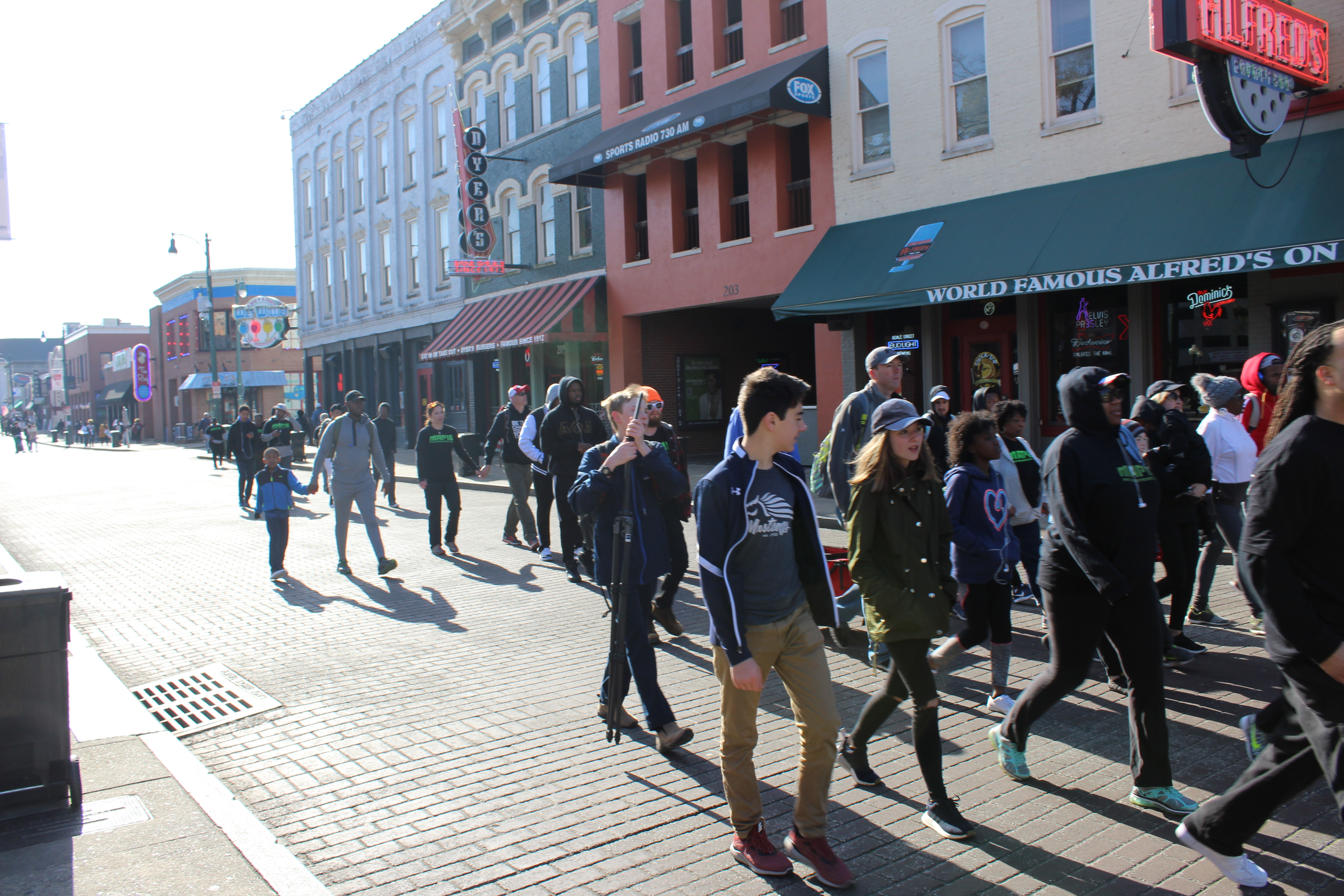 Caroline Qatsha, Sophomore:
Caroline Qatsha, Sophomore:
I am so incredibly grateful for the opportunity to have gone to Memphis for the MLK50 event. The speakers were impassioned with a dedication that spread, and walking through the event, I could feel the intense spirit that became instilled in everyone. As we were capturing footage for our work with the Center for Civil and Human Rights, I was ecstatic to think about how others will be able to experience this event in virtual reality this coming May.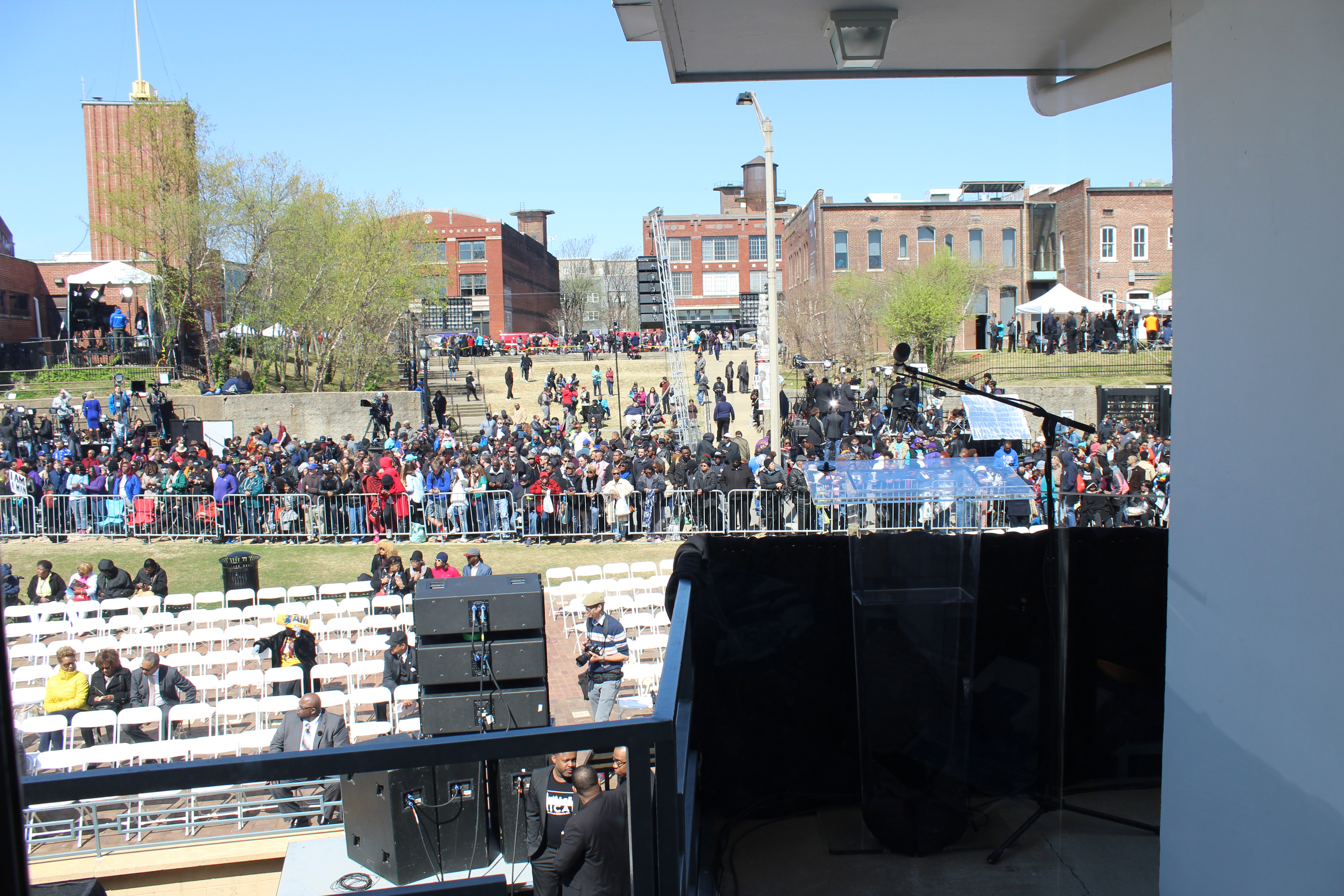 Oliver Schouest, Sophomore:
Oliver Schouest, Sophomore:
The Memphis trip was incredibly influential. Throughout the different marches and protests which I have attended over the past few months, I have found several overlapping themes. The most prominent theme from these gatherings was, “what do we do from here?” The MLK50 gathering in Memphis exemplified this theme the most. Focusing on future policy change was a major talking point for all of the speakers. Many of them also critiqued how Dr. King has been used as a symbol for injustice in the past, rather than as a call to action and legacy.
